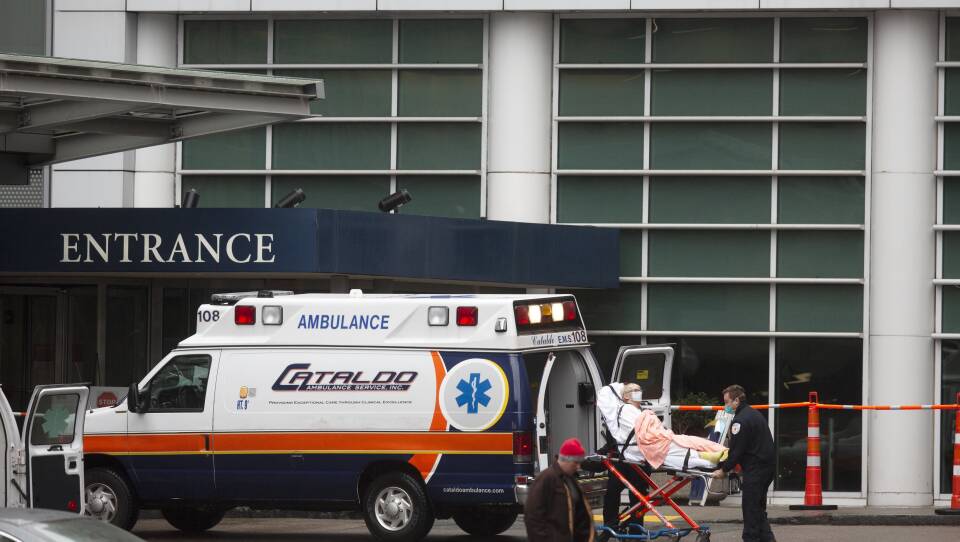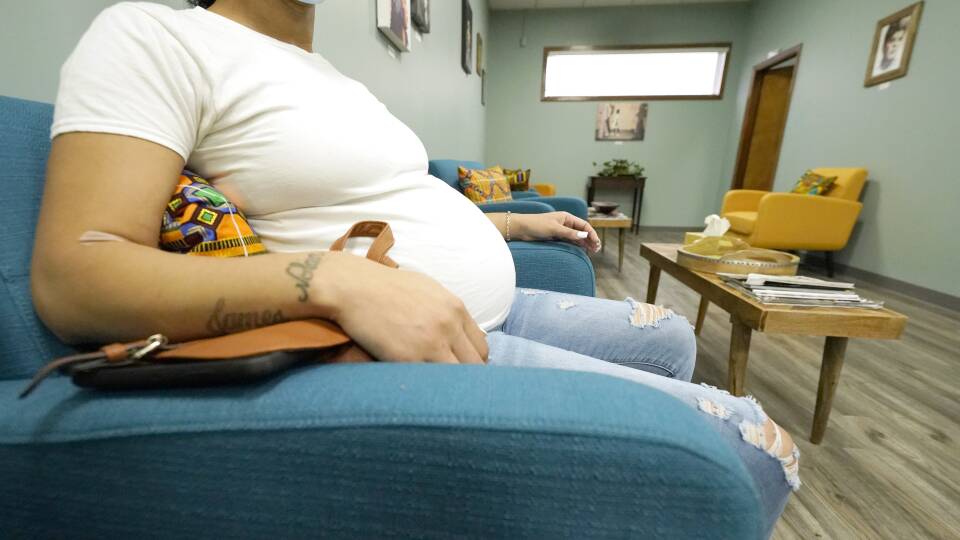Life expectancy in Massachusetts is still higher than nearly every other state, a new report from the U.S. Centers for Disease Control and Prevention finds. Residents live to be nearly 80 years old in Massachusetts, second only to Hawaii.
That consistently high ranking is one local experts pin to the state’s excellent hospital system and near-universal insurance coverage, among several major factors. And while there’s much to praise in the latest statistics, which are for 2021, they say there still lie some disturbing disparities underneath that achievement — including just in the city of Boston.
“You look at the center of Roxbury and the center of Back Bay and it’s like three or four miles,” said Dr. Asaf Bitton, a primary care physician at Brigham and Women’s Hospital and the executive director at Ariadne Labs at the Harvard T.H. Chan School of Public Health. “And, it depends on the census block, but [the difference in life expectancy is] between like five and 15 years. Three miles!”
“I’ve been doing this a long time,” Bitton continued. “I still find that just amazing and terrible.”
A recent report from the Boston Public Health Commission found that Black Boston residents died prematurely more often in 2021 than 2017, a rate that had increased by more than a third. There was no significant change for Asian, Latinx or white residents in those years.

One of the main issues, as Bitton sees it, is avoidable deaths.
“My clinic is in part of Jamaica Plain, that’s very close to some of the largest housing projects in Boston,” said Bitton. “And we take care of a wide range of people, who live in proximity and who have enormous daily challenges with health care and finances and structural racism.”
Lifestyle choices also tie back to many of those same issues, added Dr. Richard Dupee, the chief of geriatrics at Tufts Medical Center; choices like exercise, eating, smoking and drug use.
He said, one morning this week, he asked his team how many of the patients they were treating were there because of lifestyle issues.
“And so we went through each one,” said Dupee, “and out of the 18, 12 were here because of lifestyle decisions. Well over half. And that’s consistent.
“Every time I’m on service, it’s the same thing,” he continued. “It’s a question of: What are your eating habits? Definitely smoking. Lack of exercise. You name it. And of course, because we’re an inner-city hospital, a lot of drug use.”
GBH spoke with Dr. Bisola Ojikutu, Boston’s public health commissioner, about this CDC report and more in an interview on GBH’s All Things Considered.
Press “Listen” at the top of this page to hear it.
Massachusetts has struggled to prevent overdose deaths for almost a decade now, with around 2,000 deaths a year, one of the higher rates in the country.
Still, Dupee said, Massachusetts’ achievement relative to other states speaks to some of the advantages residents have by living in “sort of the medical Mecca of the universe.” That’s put residents in a position for excellent preventative health care.
“For example, in Massachusetts, heart disease is no longer the number-one reason that people die. And the reason for that is because everybody’s taking a statin,” he said. “Patients go see us and we say, when they’re 40 years of age, ‘Your LDL is too high, you need to be on a statin.’ And so cancer has now taken over as the number-one reason people die.”
But Bitton cautioned that the recent threat of the Steward Health Care bankruptcy to several Massachusetts hospitals puts a very fine point on just how easily residents can lose access to care. He wants to see hospitals and clinics kept open and financially functional.
“It isn’t like, ‘Oh, just go up to Boston, go over to the next big health system.’ We’re talking about people who might take 2 or 3 buses, who have mobility issues, who might just have had a relationship with that doctor, that health system, those teams for 20, 30 years that you can’t just sort of build overnight.”
Two hospitals — Carney Hospital in Dorchester, and Nashoba Valley Medical Center in Ayer — are set to close at the end of the month. Bitton urged state regulators to tread with care.
“It’s critical that the state regulators and policymakers who are approving and looking at this deal do everything possible to ensure the viability of these health systems in the communities that they serve, because closure of health systems that serve as safety nets in vulnerable populations are associated with worse outcomes one, two, three years down the road,” he said. “That’s been proven across the health literature. So again, a call to not be complacent, even though we may say, ‘Oh, we have wonderful health systems in general.’ The details matter.”








